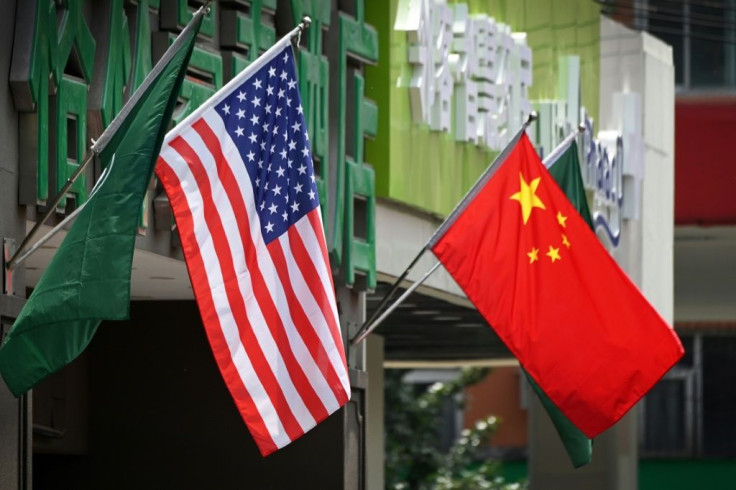Stock Market Drops Nearly 400 Points After New US - China Tariffs, Weak Manufacturing Report

The Dow Jones Industrial Average plunged nearly 400 points, or 1.5%, on Tuesday morning, with investors responding to a new round of tariffs and a report showing that U.S. manufacturing contracted last month for the first time since 2016. The S&P 500 fell about 1% as well as the Nasdaq Composite.
Some notable stocks that saw a sharp drop include Goldman Sachs (GS), which fell 2.86%, and Uber (UBER), which dropped 3.98%, by 11:55 a.m. ET.
The drop comes after the Trump administration implemented 15% tariffs of $110 billion on Chinese-made goods during Labor Day weekend. Beijing then slapped tariffs of 5% in retaliation on $75 billion worth of American goods, such as U.S. crude oil exports.
President Trump on Tuesday morning said that he would get "much tougher" on China if he wins re-election in 2020 and that "China's supply chain will crumble and businesses, jobs and money will be gone!"
The Institute for Supply Management's manufacturing index also fell to 49.1% for August, down from 51.2% in July, which worried investors that the U.S. economy may be slowing down. The drop was the first in 35 months since 2016 and could be due to Chinese tariffs on American goods.
"Respondents expressed slightly more concern about U.S.-China trade turbulence, but trade remains the most significant issue, indicated by the strong contraction in new export orders, Timothy Fiore, the Chair of the ISM Manufacturing Business Survey Committee said.
Reviving American manufacturing has been a major policy goal of Trump's administration, and contractions in the sector may cause investors to cast doubt on his economic policies.
Investor confidence has also been volatile due to the likely prospect of a no-deal Brexit, which could cause the U.K., a major world economy, to plunge into a recession, with possible shortages of fresh food and medicine.
Parliament will be suspended for a month starting next week, which gives members less time to stop a new-deal Brexit. Parliament met again Tuesday after a summer recess, with Johnson telling the House of Commons that the U.K. "will leave by Oct. 31 in all circumstances."
Sterling on Tuesday morning fell below $1.20, its lowest level since October 2016.
© Copyright IBTimes 2024. All rights reserved.





















